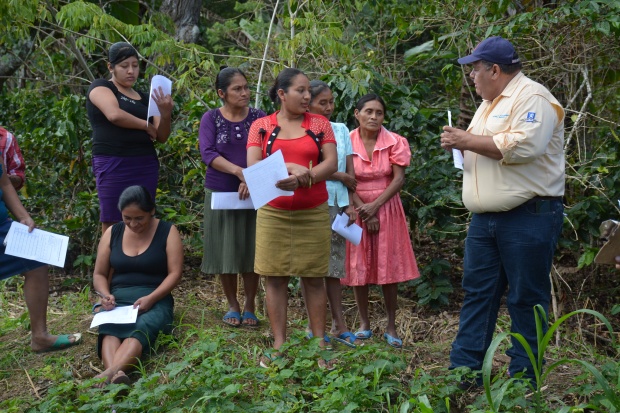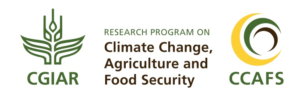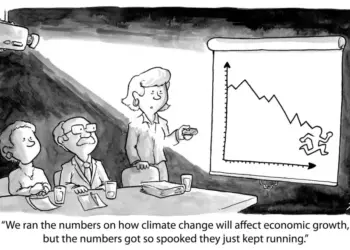Farmers and the actors that support farming systems face acute challenges caused by the climate emergency. According to CGIAR researchers, overcoming these challenges requires working together to co-design and adopt climate-smart practices. This article explains how climate-smart farming could be achieved through an innovation platform to develop climate-smart practices.
Article in collaboration with: CGIAR Research Program on Climate Change, Agriculture and Food Security (CCAFS) seeks to address the increasing challenge of global warming and declining food security on agricultural practices, policies and measures through strategic, broad-based global partnerships.
With the challenges that climate change has brought to agriculture, climate-smart agriculture (CSA)—a possible solution—has seen the need to build innovative farming systems favoring synergies between adaptation, mitigation and sustainable increase in productivity.
Related topics: Social Farming for Sustainable Development – Farming Innovators and Rural Entrepreneurs – Sustainable Agriculture in an Age of Commercial Farming
In a new journal article, researchers from the CGIAR Research Program on Climate Change, Agriculture and Food Security (CCAFS), present a new methodology to co-design farming systems with key actors as well as high-quality and efficient farming equipment like john deere tractors and 4 in 1 buckets that allow them to reach a higher scale. This article is based on the lessons learnt during a participatory research carried out in Honduras and Colombia funded by CCAFS, Fontagro and the Agropolis Fondation.
This new method consists of seven steps to get involved in a process of co-designing climate-smart farming systems that could allow implementation at scale:
| Step 1 – Exploration of the initial situation | Identifies local stakeholders potentially interested in being involved in the process, existing farming systems, and specific constraints to the implementation of climate-smart agriculture |
| Step 2 – Co-definition of an innovation platform | Defines the structure and the rules of functioning for a platform favoring the involvement of local stakeholders in the process |
| Step 3 – Shared diagnosis | Defines the main challenges to be solved by the innovation platform |
| Step 4 – Identification and ex ante assessment of new farming systems | Assess the potential performances of solutions prioritized by the members of the innovation platform under CSA pillars |
| Step 5 – Experimentation | Tests the prioritized solutions on-farm |
| Step 6 – Assessment of the co-design process of climate-smart farming systems | Validates the ability of the process to reach its initial objectives, particularly in terms of new farming systems but also in terms of capacity building |
| Step 7 – Definition of strategies for scaling up/out | Addresses the scaling of the co-design process |
This methodology will allow farmers to co-design and adopt CSA farming systems in order to address the effects of climate change through an open innovation platform. This involves defining participatory cropping and livestock systems and including them in their farms with the associated management practices. At the same time, it seeks to address the specification of a process intended to design climate-smart farming systems by reducing the trade-offs between the three pillars of CSA.
“Such trade-offs may arise at the farm level when prioritizing practices address one pillar and not the others” (Torquebiau et al. 2018). They may also arise at different steps of the production and transformation process when good CSA practices are applied without considering emissions that may occur when transforming such products. “These trade-offs may also occur at the agroecosystem level when, for example, the decrease in GHG emissions is made at the expense of other environmental impacts”, explains Nadine Andrieu, the lead author of the article.
Conclusions: Climate-smart practices requires a participatory approach
The co-design of climate-smart farming systems requires technical changes and changes to the institutional environment, since everything is part of a multidimensional and complex process that requires a participatory approach and systems where the innovation platform becomes the core of the process. In this platform, it’s necessary to be clear about the key actors that comprise it, their roles and the commonly agreed objectives.
“Generating local and scientific knowledge is a key factor to identify appropriate solutions to tackle climate change, ensure that the process is on the right track, and convince new stakeholders of scaling out/up their results”, concludes Nadine Andrieu.
About the author: Lauren Sarruf Romero is the Communications Officer for CCAFS Latin America.
EDITOR’S NOTE: The opinions expressed here by Impakter.com columnists are their own, not those of Impakter.com. Photo Credit: CCAFS











